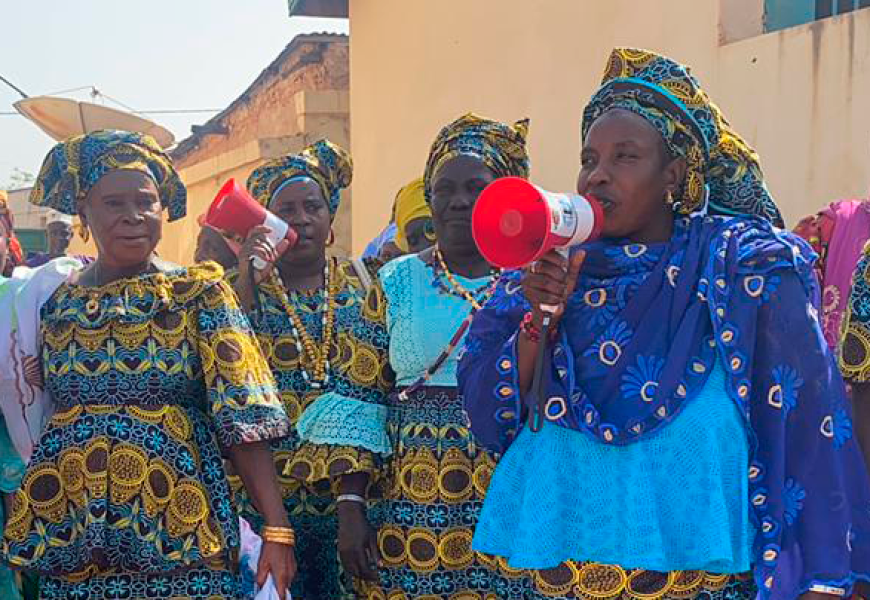Bogota, November 23, 2023—On November 28, the International Center for Transitional Justice (ICTJ) will host an international conference to explore the synergies between reparations and sustainable development in Bogotá, Colombia. The event, titled “Advancing Victims’ Rights and Rebuilding Just Communities: An International Dialogue on Reparations and Sustainable Development,” will bring together ICTJ partners from The Gambia, Tunisia, and Uganda along with civil society and government representatives from Colombia to discuss local strategies for advancing reparations for human rights abuses and how repairing victims and affected communities can contribute to local and national development. On the occasion, ICTJ will also launch a new research report on the topic.
The harms caused by massive human rights violations represent serious obstacles to achieving sustainable peace and development, not least because they often exacerbate underlying drivers of violence and conflict, such as exclusion, marginalization, and inequality. ICTJ has long emphasized the critical role transitional justice, including initiatives to repair and redress victims, can play in helping societies overcome these obstacles and build a more peaceful, just, and inclusive future.
“A lot of what ICTJ does is help victims and those who advocate for them meaningfully participate in and influence transitional justice processes such as reparations programs,” explained ICTJ’s Deputy Executive Director and Director of Programs Anna Myriam Roccatello. “Today, we’re seeing a willingness to innovate by those with whom we work to make these processes more victim centered and gender sensitive, as well as improve the well-being and development of their communities.”
As part of this ongoing work, between 2022 and 2023, ICTJ carried out research and fieldwork in Colombia, The Gambia, Tunisia, and Uganda to examine some new and diverse strategies developed and executed by domestic actors to shape reparations programs and respond to victims’ needs. The result is the new research report, “Advancing Victims’ Rights and Rebuilding Just Communities: Local Strategies for Achieving Reparation as a Part of Sustainable Development,” which will be launched at the conference in Bogotá. The report presents findings from the comparative study, including lessons learned and best practices; identifies how such local efforts can potentially contribute to sustainable development; and offers practical guidance and policy recommendations on how to advance both reparations and sustainable development.
The event will feature three panels. The first will provide an overview of the comparative study and its findings and a framework for understanding reparations as a part of sustainable development. The second will address strategies to operationalize reparations, provide support to victims, and establish more victim-centered development policies. Lastly, the third panel will discuss the intersection among reparations, criminal accountability, and sustainable development. The general public is also welcome to join the conference: ICTJ will livestream it in English on YouTube and on its English Facebook page and in Arabic on its Arabic Facebook page. For more information, visit here.
“It is our hope that this unprecedented exchange between African and Colombian experiences will help inform both national and global policy discussions related to reparations and sustainable development,” noted ICTJ’s Head of Office for Colombia Maria Camila Moreno Múnera. “In conflict-torn societies, reparations programs and policies that are designed and implemented together with victims and that therefore put their needs and those of their communities at the center not only help the society recover from its violent past but contribute to its sustainable development.”
______________
PHOTO: Through a dramatic performance, a group of women call for gender-sensitive reparations in The Gambia at an ICTJ-organized festival celebrating women and their role in the country’s transitional justice process in the town of Basse in December 2022. This local cultural and advocacy initiative was proposed by women victims. (Loum Patience/ICTJ)
